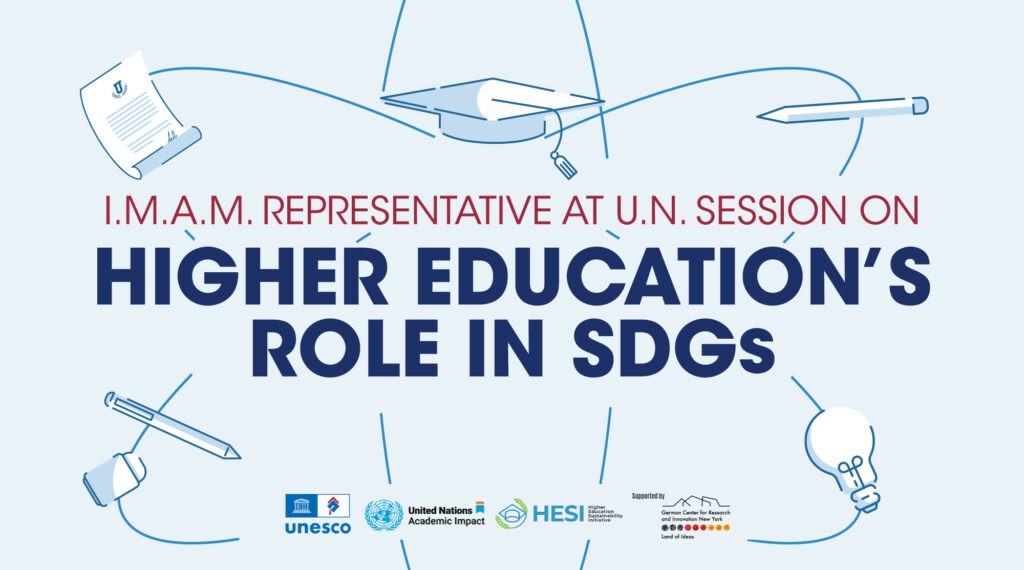I.M.A.M.’s U.N. Representative Attends Session Measuring Higher Education’s Contribution to the SDGs

On July 15, 2024, Dr. Seyed Masoud Noori, I.M.A.M.’s representative at the UN, attended a session on Measuring Higher Education’s Contribution to the SDGs. The event took place at the Permanent Mission of the Federal Republic of Germany to the United Nations.
This was an official side event within the High-Level Political Forum on Sustainable Development.
During discussions with attendees—including representatives and staff from UNESCO, the NGO office at the UN, and UN Academic Impact—Dr. Noori highlighted the historical and social significance of seminaries and called for their inclusion in the educational and promotional activities of the United Nations.
The summary of his remarks is as follows:
The historical and social importance of Islamic seminaries: Islamic seminaries, known as madrasas, have held historical and social importance for centuries. Institutions like Al-Azhar in Egypt and the hawza of Najaf have been active for nearly a thousand years. These learning centers have profoundly influenced social and educational landscapes, offering religious, philosophical, and legal education to students from across the world.
The Najaf seminary (hawza) and Al-Azhar: The hawza in Najaf, Iraq, has been a central hub for Shia Islamic scholarship since the 11th century. It has produced scholars who have shaped Islamic thought and jurisprudence and contributed to the social and moral fabric of their societies. Similarly, Al-Azhar University, established in Cairo in 970 AD, is one of the oldest universities in the world. It has played a crucial role in the intellectual and spiritual development of the Islamic world, providing a diverse curriculum that encompasses both religious and secular subjects.
Multidimensional approaches to global issues: Today, society faces environmental degradation, violence, insecurity, poverty, and discrimination. These challenges require comprehensive and multifaceted solutions not just from universities and governments but also from Islamic seminaries, which have the potential to resolve issues in regions in which they have deep-rooted influence.
The role of seminaries in solving global and local problems: Islamic seminaries are deeply connected to communities, often reaching groups that universities and governments may struggle to engage constructively. By leveraging the moral authority they have developed across centuries of service, seminaries can promote social justice, environmental stewardship, and peace building within these communities.
Active engagement with United Nations bodies: It is essential for various United Nations bodies, particularly UNESCO, to establish active engagement with Islamic seminaries. This cultural intersection can help foster education and awareness in traditionally underserved communities. In turn, it will help advance UN goals, including the Sustainable Development Goals (SDGs). Furthermore, this engagement can push seminaries to update their curricula and realize their social capital, empowering them to contribute more effectively to global well-being.
Conclusion: The historical and social significance of Islamic seminaries, coupled with their potential to address contemporary global challenges, underscores the need for collaborative efforts with the UN. By utilizing the strengths of these traditional institutions to advance the objectives of international organizations, it is possible to achieve a more sustainable, humanitarian, and harmonious world.

Leave a Comment:
You must be logged in to post a comment.